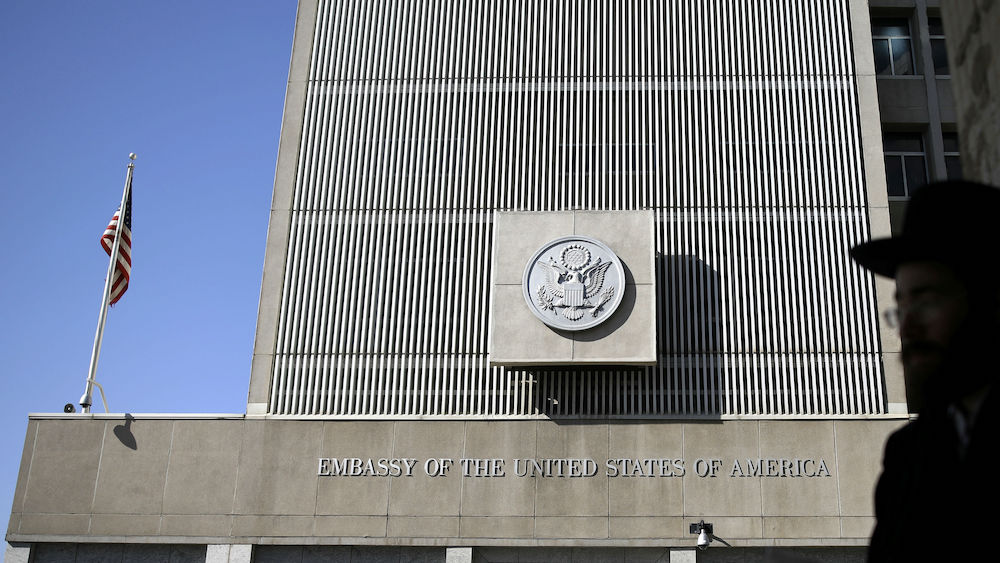Donald Trump has promised to move the US embassy in Israel from Tel Aviv to Jerusalem. If he does, it will be yet another controversial choice – but may not really matter.
Will he or won’t he? In the Jewish world, Donald Trump’s announcement that he will move the US embassy from Tel Aviv to Jerusalem is raising eyebrows. It is a step no previous US president ever dared to take out of fear of the implications of recognizing Jerusalem as Israel’s capital – even though that’s what the city really is, divided or not.
So what happens if the US embassy moves? The Palestinians are threatening a new uprising and the withdrawal of their recognition of the State of Israel. So what? Peace negotiations have reached a stalemate, with Israeli Prime Minister Benjamin Netanyahu demanding the Palestinians recognize Israel as the “nation state of the Jewish people,” a demand Palestinians have rejected.
So what would an uprising mean? Let’s look back to the year 1996. Netanyahu had then ordered the official opening of the Western Wall Tunnel, with an exit leading to the Via Dolorosa underneath the Ummariya Madrasah. Palestinians rioted to protest the exit in the East of the Old City; 80 people were killed. And then? Nothing. Today, nobody cares about this exit anymore – Israel created another fact on the ground, and while the loss of so many lives is tragic, it didn’t change a thing.
This pattern has been repeated many times in the Israeli-Palestinian conflict. Uprising or riot, intervention by the Israel Defense Forces (IDF), lots of bloodshed, and then – nothing. The situation might be a bit different this time, but who else would join the cause? Egypt? Jordan? Syria, or what is left of it? Iraq? Qatar? The Saudis? In one way or the other, they all need the US, are scared of Trump, or hope that the new US president will tear up the treaty with Iran. And Iran is, for the Saudis as well as for Egyptians and others, a much bigger headache than a US embassy in Jerusalem. Yes, they will pay lip service to the Palestinian cause, but nothing more. And since Trump is still seen as unpredictable, the Arab world would rather stay put than risk making the wrong move.
So that leaves Russia, China, and the EU. Vladimir Putin probably won’t interfere in Trump’s decision, as the two are trying to be “buddies” rather than enemies. And there is a significant chance that there will be an unspoken understanding between the US and Russia to divide the Middle East into spheres of action – so, “You don’t interfere in Syria and we won’t interfere in Israel, you don’t support this leader and we let you go crazy with Iran,” or something like this.
What about China and the EU? China is not a big player in the Middle East anyway, which leaves the EU. The Europeans will protest, of course, they will oppose it, they might give more money to the Palestinians, they might decide for some symbolic policy, and they will definitely put into place some harsher measures against Israel. But what else? At the moment, the EU appears to be so deeply involved in its own inner crises that at the end of the day it will not be able to do too much to counter such a decision from Trump.
The only thing that remains unclear is whether or not Trump is serious. If he is, the location is already known: a plot which, until 1967, was no man’s land. It might now become the hottest spot in all of Jerusalem.







